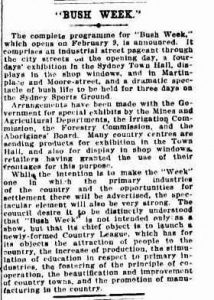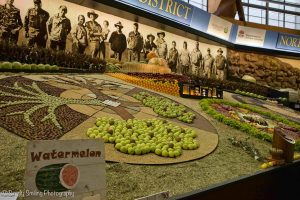I teach creative writing (at the Australian Writers’ Centre) and my students write across very wide-ranging topics. Part of my job, as I see it, is to challenge them on aspects of their work which don’t quite meet reality (or a coherent version thereof). It might be simple, like dates being wrong. It might be physics (if you’re going to write about alternate worlds and portals from our world into them, you really ought to know the basics of wormhole theory). It might be gardening (because I write a children’s series set in a place called Floramonde…). It might be poisons (I read a lot of crime fiction).
Overall, it’s astonishing the number of times I have pulled a piece of information out of some back corner of my mind and had a class member say, ‘How do you know all this stuff?’
Well, here’s my confession:
I’m addicted to research.
It’s not because I write historical fiction – in fact, it’s more the other way around. I write historical fiction because I love researching.
There is so much good stuff out there – little shiny facts that glitter when you come across them, as if they’re trying to catch your attention… and then lead to another fact, and another, and pretty soon you’re down the rabbithole and in a totally different place to where you thought you were going.
And it’s all good.
Yes, it’s all good. Even information you never think will come in handy for anything – it will, sometime. Somewhere. Even if it’s in someone else’s story.
But even if it doesn’t, research has its own rewards.
This week I was reading the Sydney Morning Herald editions for the first couple of weeks of February, 1920, which is where my current book, The War Bride, has got up to. And I found this:

Bush Week.
For those of you who are not Australians, there is an old saying here, ‘What d’you think it is, Bush Week?’ That saying implies that you are ‘trying one on’ – that is, asking too much, trying to trick someone, wanting something unreasonable. I’d wondered, in a vague kind of way, what Bush Week was, but I’d always assumed it was fictitious, like the Black Stump.
But no. Bush Week was real. Of course, I had to find out more, so I did. Apparently Bush Week was an annual event (first one, as you can see, in 1920) when country districts did displays in the Town Hall and elsewhere in the city, stores devoted window displays to country products and areas, and there were lectures, concerts at the Conservatorium of Music, and a parade! I suppose, as the Royal Easter Show gained popularity, Bush Week was rolled into that and disappeared. This is the kind of exhibit the country districts put on now:

I haven’t been able to find any images of the ones in 1920, but give me time…
It’s easy to see how the saying came about, with all the bushies in town for the week. No doubt some shopkeepers took advantage of them and charged them higher prices. No doubt some hoteliers ‘tried it on’ in the matter of accommodation charges. So to ask ‘What d’you think it is, Bush Week?’ was to show that you were no country bumpkin*, out on the spree for the first time. There were no flies on you, mate. You hadn’t come down in the last shower. You were smart as a whip, you were.
You see why I love research? There’s a whole story in that one phrase, ‘Bush Week’.
* the word ‘bumpkin’ entered the language in 1570 as ‘bunkin’ or ‘bumking’, which despite its looks, didn’t have anything to do with anything crude. It was from the Dutch and meant to imply a short, stout fellow (it’s probably the root as boomken, a short boom on a sailing ship).

What a wonderful peek into your research. I hope there’ll be more snippets like this…
Certainly!
I love the research too, Pamela. When I read about Bush Week in The Soldier’s Wife I literally said an out-loud ‘huh!’ I couldn’t put the book down straight away, of course, being too engrossed in the story, but as soon as I was able, I hit the internet and researched for myself.
I love that you used it and opened my eyes to it (and how hard is it not to include all kinds of tidbits just out of interest!).
I love the research too, Pamela. When I read about Bush Week in The War Bride I literally said an out-loud ‘huh!’ I couldn’t put the book down straight away, of course, being too engrossed in the story, but as soon as I was able, I hit the internet and researched for myself.
I love that you used it and opened my eyes to it (and how hard is it not to include all kinds of tidbits just out of interest!).
The hard bit is not packing the whole story with too much information! My editors are very good at weeding out what doesn’t belong.